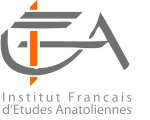Most of the time, the countries of the South Caucasus are being scrutinized from Moscow, Istanbul, and Tehran, the capital cities of the former empires that ruled the region for centuries and struggled for control over these territories. And indeed, be it the Russian, and then the Soviet empires, or the Persian and Ottoman empires, the Caucasus has been, and still is, very much affected by the influence of regional powers in a wide range of areas. As far as identity issues in the Caucasus are concerned, they tend to be studied mainly through post-Soviet lenses due to the influence of the Soviet nationalities policy. Although this inheritance still appears relevant today, the conference aims to put the emphasis on the complex set of processes that shape identities in a broad meaning. We do therefore not intend to sweep away the past, but rather to better focus on local dynamics within the Caucasus in relation to more global processes, without neglecting regional aspects. Contemporary societies are characterized by the increasing number of groups (real or symbolic) individuals feel to be part of. At the same time, group boundaries are getting increasingly blurred and evolve over time while confronting otherness. The Northern (also concerned by the conference although it is part of the Russian Federation) and the Southern Caucasus are no exceptions. The conference will therefore adopt a multi-scale approach since the notion of identity may be expressed at different levels (individuals, groups, societies, states), and will focus on a wide range of topics: gender, migrations, ethnic relations, diasporas, etc.
Program and information: Download the program here (PDF)
Qafqaz University, Baku, May 15-16, 2015
Venue: Khirdalan, Hasan Aliyev street, Faculty of Economic and Administrative Sciences (IBF), room 310
Please register: cmahmudov@qu.edu.az
{pgslideshow id=33|width=800|height=600|delay=3000}
Organizers
Center for Security and Energy Research at Qafqaz University – Baku
Institut français d’études anatoliennes (IFEA)/Observatoire du Caucase – Baku
Institute of Archaeology and Ethnography of the Azerbaijan National Academy of Sciences (ANAS)
Organizational committee
Aliagha Mammadli
Ceyhun Mahmudlu
Adeline Braux
With the support of
Qafqaz University
Institut français d’études anatoliennes
Academic Swiss Caucasus Net
Ambassade de France en Azerbaïdjan/Campus France
Under the presidence of
Ms Anne de Tinguy, Full Professor at the Institut national des langues et civilisations orientales (INALCO-Paris)
Mr Aliagha Mammadli, Head of the Department of Ethnosociological Research at the Institute of Archaeology and Ethnography of ANAS
Program
May 15
9.30: Get together and welcome addresses
10.30-12.30
Chair: Anne de Tinguy
Migration and Diaspora Issues
Chen Bram, Truman Institute for the Advancement of Peace, The Hebrew University – Jerusalem
Diaspora and Transnationalism Revisited: The case of Azerbaijani and Georgian Jews
Adeline Braux, IFEA, Caucasus branch – Baku
Lifestyle and ‘Styled Life’: How Youngsters of South-Caucasian Descent in Russia Get Transnational
Maroussia Ferry, EHESS – Paris.
Changing Social Identities: The Case of Georgian Circulatory and Return Migrants
Teona Mataradze, Martin-Luther University – Halle-Wittenburg; Assistant Professor, Faculty of humanities, Tbilisi State University
‘Friendship of People » During Political Crises
12.30-13.30: Lunch break
13.30-15.00
Chair: Sofie Bedford
Social and Identity Changes in Azerbaijan
Nicolas Crosnier, INALCO – Paris
Urban Renewal of Baku. Representations and Clashes in Society About the New Face of Baku
Raphaëlle Mathey, EHESS
Social and Identity Changes in Azerbaijan in the Last Decades Through the Prism of the Evolution of Funeral Rituals
15.00-15.30: coffee break
15.30-17.30
Chair: Clément Therme
Minority Issues and Intergroup Relations
Ketevan Khutsishvili, Institute of History and Ethnology, Tbilisi State University
Moslem-Christian Interrelations: The Case of Shared Sacred Sites in Kvemo Kartli Region (Georgia)
Karli Storm, University of Eastern Finland
Analyzing Manifestations of and Responses to Ethno-national Identity in a Border Region: Individual and Group Encounters with Ethno-national Identity in Kvemo Kartli
Kutbettin Kiliç, Indiana University-Bloomington
Ethnicity, Ethnic Identity and Ethnic Political Behavior: A Conceptual Typology
19.00: Dinner (for participants to the conference only)
May 16
10.00-13.00
Chair: Kutbettin Kiliç
Identity and Nation-building in Azerbaijan
Sofie Bedford, Centre for Russian and Eurasian Studies, Uppsala University
Turkey and Azerbaijan: One Religion—Two States?
Aliagha Mammadli, Institute of Archaeology and Ethnography at the ANAS – Baku
About some factors of stability of ethnic identity of Azerbaijanis during the Soviet period (in Russian)
11.15-11.30: coffee break
Ceyhun Mahmudlu, Center for Security and Energy Research, Qafqaz University
Ethnic Origin and Azerbaijanism
Aydin Balayaev, Institute of Archaeology and Ethnography at the ANAS
The Revival of Islam in Azerbaijan and Its Influence on National Identity (in Russian)
13.00-14.00: Lunch break
14.00-16.00
Chair: Adeline Braux
Azerbaijan in Its Regional Environment
Nariman Karakhani, Qafqaz university
Civilization values of Azerbaijan and its relationship with other civilizations
Clément Therme, CETOBAC/EHESS – Paris
The Azeri question in historical and cultural perspectives: the view from Iran
Serkan Yolacan, Duke University – Durham
A seesaw across the Black Sea: Turkish-Azeri encounters in old frontiers
Laurent Vinatier, Centre for Russian and Eurasian Studies, Uppsala University
Russia’s new unpredictability: a chance for peace in Nagorno-Karabakh
